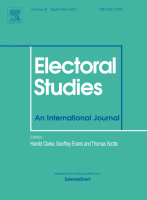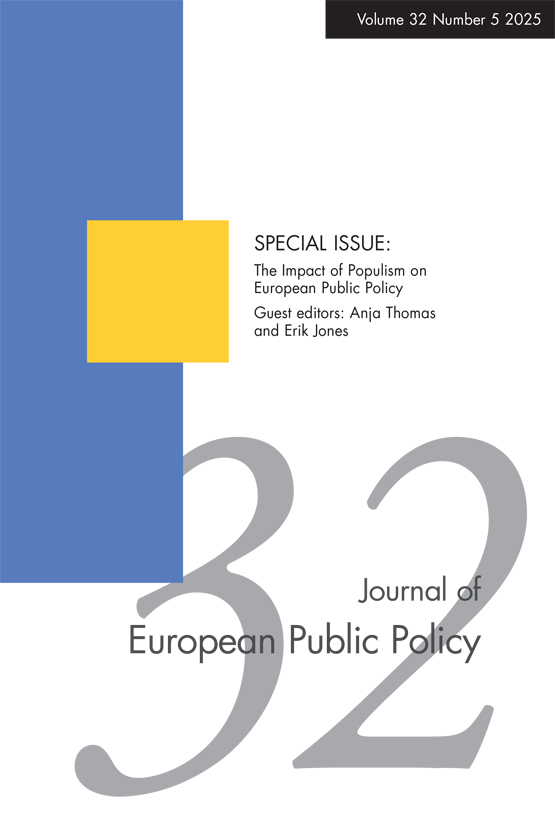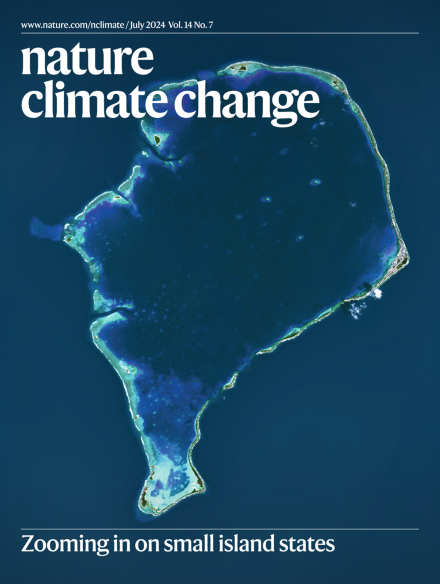POLITICS OF CLIMATE CHANGE
summary
A summary will be added in due time.
Research in this area has been (partly) funded by:


related publications
2026
-
 Buying Voter Support for Unpopular Policies: Evidence from German Nuclear Power PlantsAntónio Valentim, Heike Klüver, and Cornelius ErfortElectoral Studies, Forthcoming 2026
Buying Voter Support for Unpopular Policies: Evidence from German Nuclear Power PlantsAntónio Valentim, Heike Klüver, and Cornelius ErfortElectoral Studies, Forthcoming 2026How can governments ensure voters’ support for unpopular policies? Policymakers often have to implement policies that are unpopular in local communities, such as the construction of windmills or nuclear power plants. However, little is known about how policymakers can increase local support. We argue that perceived economic benefits increase support for otherwise unpopular policies. We test our argument by studying the consequences of nuclear power plants on support for the Green Party in Germany, a strong opponent of nuclear energy. We collected a novel dataset on the geographic location of nuclear plants and voting records since the 1980s. Using difference-in-differences and instrumental variable designs, we find that the opening of nuclear power plants has a negative effect on the vote share of the Greens. Additional individual-level panel analyses suggest that this effect is driven by economic considerations. Overall, these results are relevant for the study of energy transitions and the design of unpopular policies more generally.
@article{valentim_buying_2025, title = {Buying {Voter} {Support} for {Unpopular} {Policies}: {Evidence} from {German} {Nuclear} {Power} {Plants}}, shorttitle = {Buying {Voter} {Support} for {Unpopular} {Policies}}, author = {Valentim, António and Klüver, Heike and Erfort, Cornelius}, year = {2026}, month = {forthcoming}, journal = {Electoral Studies}, }
2025
-
 Mobilizing Europe’s Citizens to Take Action on Migration and Climate Change: Behavioral Evidence from 27 EU Member StatesHeiko Giebler, Johannes Giesecke, Macartan Humphreys, Swen Hutter, and Heike KlüverJournal of European Public Policy, Jun 2025
Mobilizing Europe’s Citizens to Take Action on Migration and Climate Change: Behavioral Evidence from 27 EU Member StatesHeiko Giebler, Johannes Giesecke, Macartan Humphreys, Swen Hutter, and Heike KlüverJournal of European Public Policy, Jun 2025This paper investigates how two politicized issues – migration and climate change – mobilize citizens across European countries. Building on the concept of issue-specific mobilization potentials, we examine citizens’ willingness to support petitions related to the two issues using an original behavioral measure embedded in the 2024 European Parliament Election Study. We document variation in political engagement and examine how opposing stances on issues owned by the left or the right mobilize citizens, how citizens’ agreement with issue positions affects support, and whether grievances, participation cultures, politicization levels, and the ideology of the national government can explain national-level variation. Our results indicate substantial variation in petition support across countries and issues, with the right-wing petition on migration attracting the most support. However, our country-level measures do not explain this variation well. Overall, our findings highlight the need for more nuanced, issue-specific approaches to understanding cross-national patterns of political participation.
@article{giebler_mobilizing_2025, title = {Mobilizing {Europe}’s Citizens to Take Action on Migration and Climate Change: Behavioral Evidence from 27 {EU} Member States}, shorttitle = {Mobilizing {Europe}’s citizens to take action on migration and climate change}, author = {Giebler, Heiko and Giesecke, Johannes and Humphreys, Macartan and Hutter, Swen and Klüver, Heike}, year = {2025}, month = jun, journal = {Journal of European Public Policy}, pages = {1--29}, doi = {10.1080/13501763.2025.2512032}, issn = {1350-1763, 1466-4429}, url = {https://www.tandfonline.com/doi/full/10.1080/13501763.2025.2512032}, urldate = {2025-06-06}, language = {en}, }
2024
-
 Does Protest Affect Bystanders? Field Experimental Evidence from GermanyVioleta Ines Haas, Tim Wappenhans, Ferdinand Geissler, Felix Hartmann, Daniel Bischof, Johannes Giesecke, Macartan Humphreys, Heike Klüver, and Lukas StoetzerJul 2024
Does Protest Affect Bystanders? Field Experimental Evidence from GermanyVioleta Ines Haas, Tim Wappenhans, Ferdinand Geissler, Felix Hartmann, Daniel Bischof, Johannes Giesecke, Macartan Humphreys, Heike Klüver, and Lukas StoetzerJul 2024Do protests matter? Only a handful of studies convincingly test causal claims about protests’ effects on politics, which is crucial when studying the actual impact of protests. There is a gap in empirical research capable of testing causal claims about protests and the detailed micro-foundations of the theoretical mechanisms developed in protest research. We attempt to address this by designing and conducting a large-scale field experiment, randomly assigning citizens to observe climate strikes by Fridays for Future (FFF) in Berlin, Germany. Theoretically, we argue that observing political protest serves as a visible cue that conveys summary information about societal attitudes and behaviors, creating the impression of shifting public opinion and social norms. We find that while bystanders adapt their actual behavior in favour of protesters’ demands, their attitudes and social norm perceptions remain largely unchanged. These findings fill an important gap in the literature by unveiling the mechanisms through which protests translate into shifts in political outcomes.
@misc{haas_does_2024, title = {Does {Protest} {Affect} {Bystanders}? {Field} {Experimental} {Evidence} from {Germany}}, shorttitle = {Does {Protest} {Affect} {Bystanders}?}, author = {Haas, Violeta Ines and Wappenhans, Tim and Geissler, Ferdinand and Hartmann, Felix and Bischof, Daniel and Giesecke, Johannes and Humphreys, Macartan and Klüver, Heike and Stoetzer, Lukas}, year = {2024}, month = jul, publisher = {Open Science Framework}, doi = {10.31219/osf.io/42s8e}, url = {https://osf.io/42s8e}, urldate = {2025-05-09}, copyright = {https://creativecommons.org/licenses/by/4.0/legalcode}, } -
 Extreme Weather Events Do Not Increase Political Parties’ Environmental AttentionTim Wappenhans, António Valentim, Heike Klüver, and Lukas F. StoetzerNature Climate Change, Jul 2024
Extreme Weather Events Do Not Increase Political Parties’ Environmental AttentionTim Wappenhans, António Valentim, Heike Klüver, and Lukas F. StoetzerNature Climate Change, Jul 2024Exposure to extreme weather events can make people more aware of environmental changes; however, it remains unclear how such events influence politicians’ behaviour. Combining supervised learning algorithms on over 260,000 press releases by European parties with a difference-in-differences design, we find that apart from Green parties, extreme weather events do not increase attention towards environmental issues. This suggests the consequences of climate change might not directly increase political attention.
@article{wappenhans_extreme_2024, title = {Extreme {Weather} {Events} {Do} {Not} {Increase} {Political} {Parties}' {Environmental} {Attention}}, author = {Wappenhans, Tim and Valentim, António and Klüver, Heike and Stoetzer, Lukas F.}, year = {2024}, month = jul, journal = {Nature Climate Change}, volume = {14}, number = {7}, pages = {696--699}, doi = {10.1038/s41558-024-02024-z}, issn = {1758-678X, 1758-6798}, url = {https://www.nature.com/articles/s41558-024-02024-z}, urldate = {2025-05-15}, language = {en}, data = {https://dataverse.harvard.edu/dataset.xhtml?persistentId=doi:10.7910/DVN/E9ASJI}, dataset = {partypress}, } -
 Confrontational Forms of Protest and Support for Climate ActionĐorđe Milosav, Asli Unan, and Heike KlüverJul 2024
Confrontational Forms of Protest and Support for Climate ActionĐorđe Milosav, Asli Unan, and Heike KlüverJul 2024Climate protests are on the rise, demanding urgent action from governments and the public. As more recent climate protests often employ disruptive methods, such as food throwing, airport and road blockades, their effects on progressive climate action support remain relatively understudied. Our preregistered study aims to address this gap by evaluating the effects of three factors: 1) the level of protest disruption (peaceful, road blockages), 2) the level of police involvement (no police, peaceful, violent) and 3) perceived personal costs (no cost, high cost) to bystanders on two key outcomes: a) the perceived salience of climate issues and b) support for climate action protests.
@misc{milosav_confrontational_2024, title = {Confrontational {Forms} of {Protest} and {Support} for {Climate} {Action}}, author = {Milosav, Đorđe and Unan, Asli and Klüver, Heike}, year = {2024}, publisher = {OSF Registries}, doi = {10.17605/OSF.IO/SBU4N}, url = {https://osf.io/sbu4n/}, urldate = {2025-05-15}, copyright = {Creative Commons Attribution 4.0 International}, }